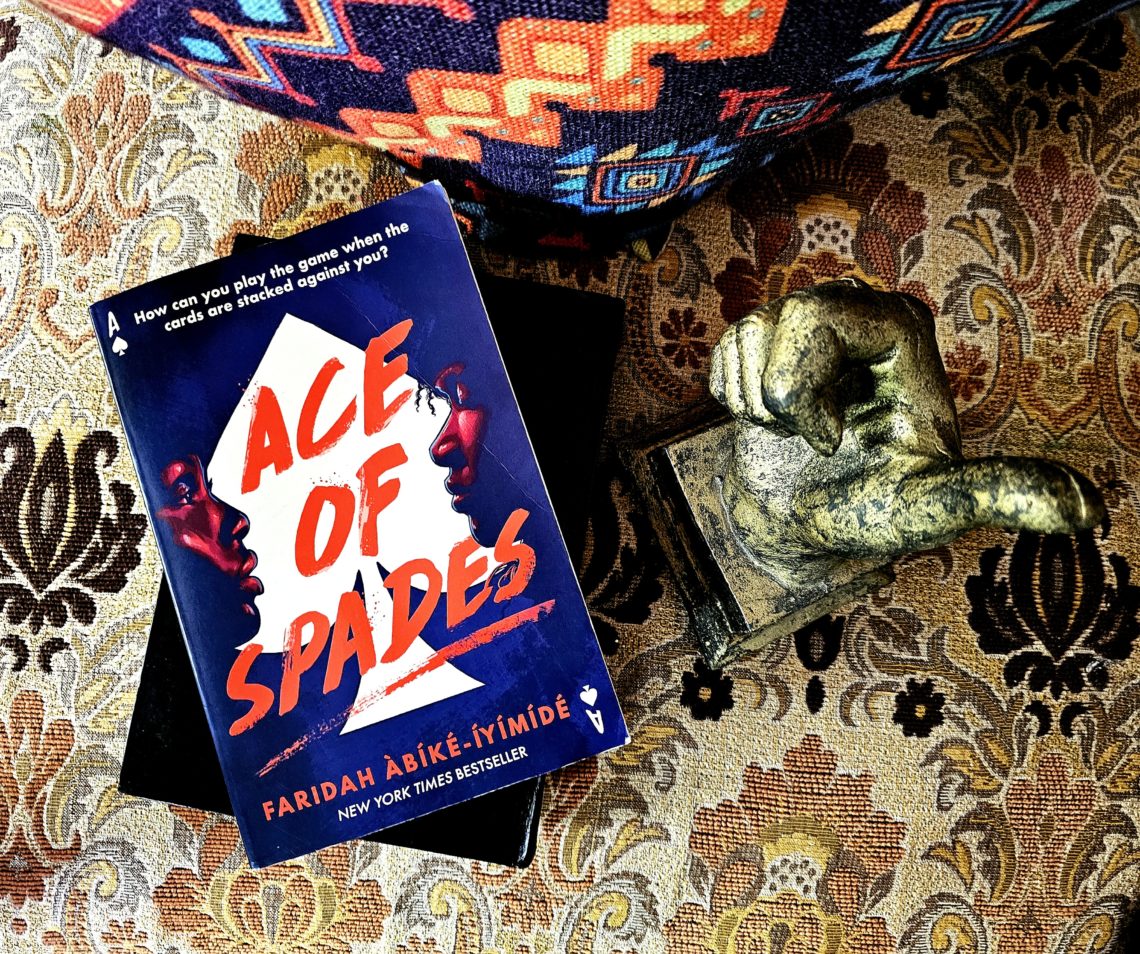Spoiler Alert: May contain spoilers for Faridah Àbíké-Íyímídé's "Ace of Spades".
My Dearest Readers!
I finally got around to reading Faridah Àbíké-Íyímídé‘s debut novel, “Ace of Spades”, a book I had been planning to read for some time now. “Ace of Spades” is a young adult novel that explores how race and discrimination inform and shape the educational experiences of African American students in a society that is still not entirely free from the racist viewpoint of the previous generations.
“Ace of Spades” is an imaginative rendition of what might happen if certain institutions adopted racism itself as their main agenda. Faridah Àbíké-Íyímídé’s “Ace of Spades” is a forceful and shocking story of institutionalised racism at it’s worst. The novel follows two African American students who are the only people of colour in the otherwise predominantly white Niveus Private Academy. The story begins at the start of the students’ senior year when the two protagonists, Devon and Chiamaka find themselves on the student council. Both students assume that their senior year is going to be brilliant however, this assumption is soon shattered by a mysterious person who goes by “Ace of Spades” and seems to know all of Devon’s and Chiamaka’s secrets and is determined to reveal them to the public. While I found the beginning of the book slightly simplistic, perhaps because of its focus on high school students, the story soon picked up pace becoming more and more intense and creepy until the shocking big reveal.
The existence of Racism and discrimination against dark skinned people is an issue that has existed for millennia. While the discrimination is against a whole race of people (Racism) by another race or against skin colour itself (colourism), as is often the case even among people of the same race, the existence of discrimination based on appearance and physical characteristics is a problem which pervades societies across the world even today. This is an issue that many writers of colour have tried to address in their literature. “Ace of Spades” also addresses these problems as its main focus.
Àbíké-Íyímídé’s text focuses on the racist context of its setting and premise from the very beginning of the book. She uses the characters of Chiamaka and Devon to explore the difficulties of navigating life as Black students in a largely white context. Both Chiamaka’s and Devon’s struggles are further exacerbated by the “Ace of Spades” whose attacks continue to become more and more personal and destructive as the school year progresses. However, it is at the very end of the novel that Àbíké-Íyímídé reveals the shocking truth about the mysterious “Ace of Spades” and the racist plot behind Niveus Academy itself. In doing so, Àbíké-Íyímídé explores how race-based discrimination is embedded in many of the society’s institutions and raises the question of how effective the fight against racist discrimination is in a society that is built upon the dynamics of discrimination based on appearance and race.
The novel itself is gripping and fast paced after its slightly slow beginning. I found the ending slightly abrupt and confusing but it could be because of my own lack of experience with how the current generation uses social media platforms. Overall however, this was a solid debut novel and I look forward to reading more of Faridah Àbíké-Íyímídé’s work.
Love!








2 Comments
M. Munhib Shah
July 6, 2023 at 7:32 pmI haven’t read it yet, but based on our earlier discussion, it seems like it also gets down to the nitty gritty of why some popular measures are counterproductive (but I can’t decide before reading, which is when I might write a detailed opinion).
For now, let us remember Malcolm X:
“The white liberal differs from the white conservative only in one way: the liberal is more deceitful than the conservative. The liberal is more hypocritical than the conservative. Both want power, but the white liberal is the one who has perfected the art of posing as the [black person’s] friend and benefactor; and by winning the friendship, allegiance, and support of the [blacks], the white liberal is able to use the [blacks] as a pawn or tool in this political “football game” that is constantly raging between the white liberals and white conservatives.
“Politically the American [black person] is [like] a football and the white liberals control this […] ball through tricks of tokenism: false promises of integration and civil rights. In this profitable game of deceiving and exploiting the political politician of the American [black people], those white liberals have the willing cooperation of the [black] civil rights leaders. These “leaders” sell out our people for just a few crumbs of token recognition and token gains. These “leaders” are satisfied with token victories and token progress because they themselves are nothing but token leaders.”
Mansoor Akram
July 6, 2023 at 8:45 pmVery enlightening.